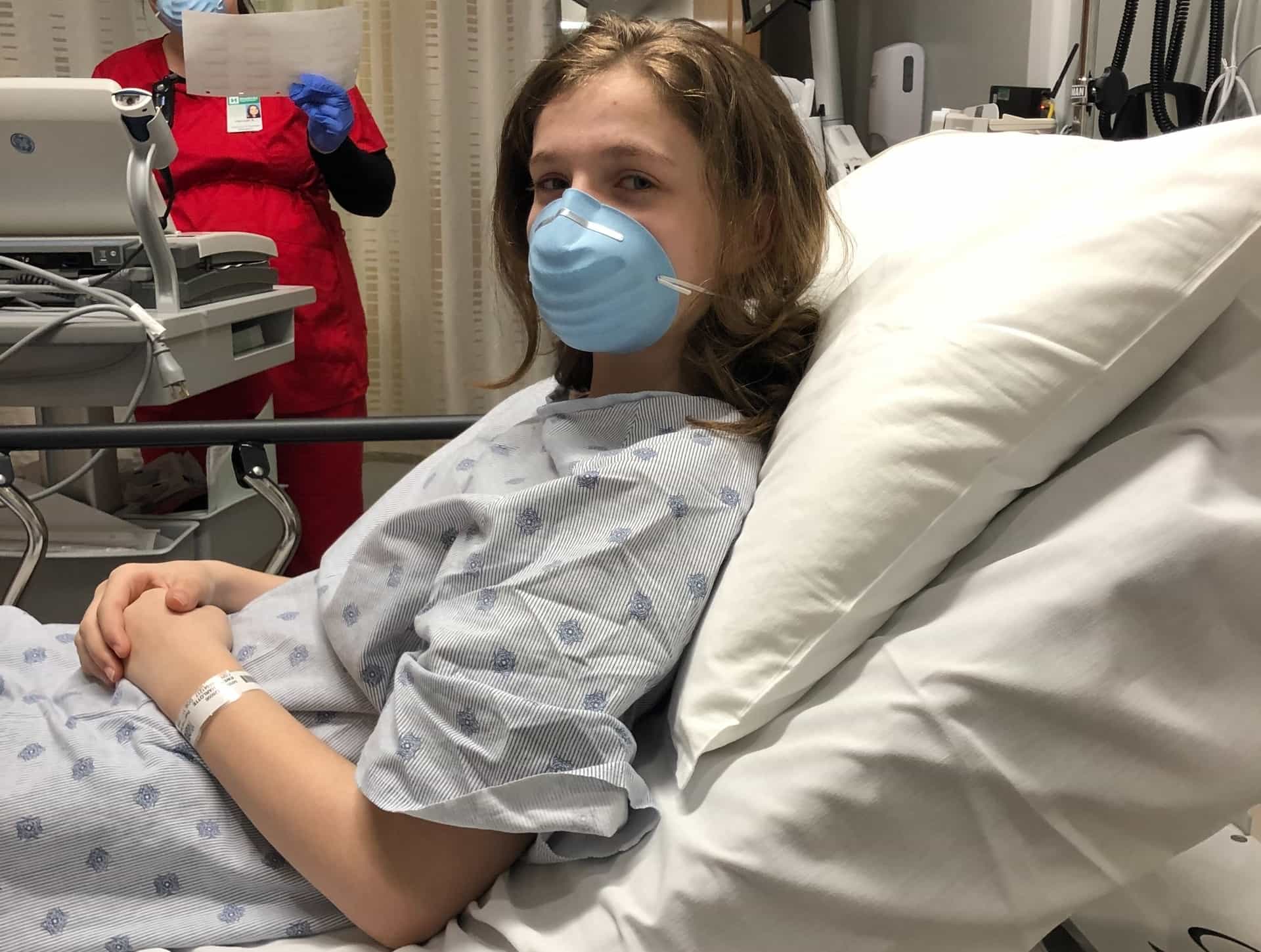
Surgery can be a very scary experience for a child. As a parent, you can help alleviate their fears as well as your own. Preparing your child for surgery can help them feel safe and less anxious about the entire experience.
To help prepare your child for surgery, we’ll cover:
- Preparing yourself for your child’s surgery
- Preparing your child for surgery
- Pediatric surgery in Evansville, IN
At Evansville Surgical Associates, we do everything we can to build trust with our youngest patients. Keep reading to learn how to prepare for your child’s surgery as well as how our surgeons can provide the best experience possible.
Preparing Yourself for Your Child’s Surgery
First and foremost, you want to make sure that you’re prepared for your child’s surgery. This means knowing about what to expect leading up to the surgery, during the surgery, and what to expect during recovery.
You will be your child’s primary source of information as well as comfort. You’ll want to have as much information ready to help assure them that everything is going to be okay. Preparation begins during your office visit before the surgery. Be sure to ask about:
- The length of the operation
- Pain management
- Caring for surgical wounds
- Recovery time
Remaining calm is essential since your child will be looking to you as their main source of comfort. They will be able to pick up on your nervousness or stress, even if it’s nonverbal. What you say with words is important, but so is what you say without speaking.
It’s perfectly normal to be worried about your child’s well-being, even if you know they’re in good hands. That’s why it’s important to manage your:
- Facial expressions
- Physical gestures
- Body language
This will help to ensure that your child is not only comforted by your words, but also by your nonverbal communication. This level of assurance can do wonders for your child’s emotional and mental well-being before surgery and help the recovery process go much more smoothly.
In many cases, the surgery is what’s known as a same-day procedure. This means that your child won’t have to stay in the hospital for a prolonged period of time or even overnight. If your child does have to stay overnight or for a prolonged period of time, a parent is usually allowed to stay with them to help keep them calm after their surgical procedure.
Preparing Your Child for Surgery
Now that you’re prepared for your child’s surgery, it’s time to prepare them. Surgery can be a stressful experience regardless of age, but it can be especially stressful for children that look to their parents as a source of comfort and safety. You probably won’t be able to alleviate all of your child’s fears; however, you can help minimize them.
Children’s fears and what can comfort them most changes as they get older. This means that what works for one life stage, such as toddlers, may not work as well for a teenager. That’s why it’s helpful to know what works best for each age group.
Infants
Infants often struggle with being separated from their parents and lack of familiarity. This can include unfamiliar sights, sounds, and people. Surgery can also interrupt their regular routines such as sleep, leading to a very cranky surgical patient.
One of the best things you can do for your infant is to make sure that you both get plenty of rest. While you can’t communicate verbally, they can still pick up on your stress so it’s very important that you remain calm. Try to keep them distracted if they can’t eat or sleep by rocking or walking them. You can also bring a favorite blanket or pacifier to help keep them feeling safe.
Toddlers
Like infants, toddlers become stressed due to their new environment and interacting with new people. They also dislike having to stay in one place, which can be difficult to deal with in a hospital setting.
At this point, most parents are able to verbally communicate with their children. Take the time to explain who the staff members are and what they do before your child goes in for surgery. Keep your answers simple and as positive as possible. It can also help to read books with your child about going to the hospital so they don’t feel as afraid.
Preschoolers
At this age, children begin developing fears of pain from needles and shots. This can also include being afraid of having their body damaged during surgery. Preschoolers don’t like having their routines interrupted, which surgery is sure to do.
To prepare your preschooler for surgery, be open and honest with them about what to expect. Be honest that it will hurt, but it’s only temporary and for their own good. It’s also important that they know that it isn’t a punishment. If possible, take them on a tour of the hospital. This can help make them more familiar and less nervous about the procedure.
School-Aged Children
The fear of pain from surgery is a common issue in kids who are in school. Surgery can also be difficult for school-aged children due to the loss of control of their environment. Another common fear among school-aged children is waking up during surgery
Kids at this age have very powerful imaginations, so it’s important to not let them run wild. Answer all their questions truthfully while highlighting how it will help them get back to normal. Ask them to repeat your answers back to you to ensure that they understand what’s going to happen. You should also make sure to give them plenty of choices so they feel like they have some kind of control over what’s happening.
Teens
Teenagers tend to be concerned about the risks involved during surgery. This can include the normal fear of pain, or worse. They also worry about the effect surgery can have on their body and if it will affect their appearance.
One of the most important things you can do for your teenager is to respect their privacy, so it’s important to not prod them with questions. They also don’t like admitting when they don’t understand something so you may have to explain something in a few different ways. Be as honest as possible with them.
Pediatric Surgery in Evansville, IN
Pediatric surgery can be scary for any child, regardless of their age group. Here at Evansville Surgical Associates, our surgeons understand that they require special care. That’s why they do everything they can to alleviate their fears while also building trust with children and parents.
We focus on minimally invasive techniques that decrease pain while allowing for faster recovery time. We perform surgical procedures for some of the most common childhood problems, including hernias, appendicitis, and pyloric stenosis.
Established in 1969, Evansville Surgical Associates celebrates 50 years of providing leading-edge comprehensive and compassionate surgical care. Learn more about our physicians and our practices by visiting our website, or by calling us at 812.424.8231 or 800.264.8231.



